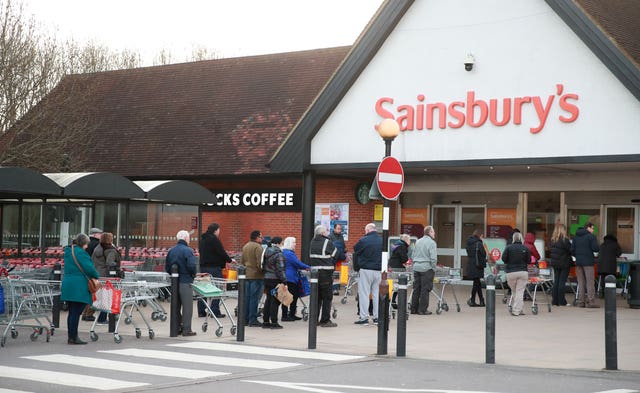Supermarket Sainsbury’s enjoyed a strong boost in sales thanks to its position as an essential retailer during the year of Covid.
Sales in the year to March 6 jumped 7.8%, including an 8.3% rise in non-food business as shoppers were unable to head to non-essential retailers for large parts of the year.
But £485 million in Covid-related costs and a major restructuring that saw around 1,150 jobs affected, sent the business to a £261 million loss for the year.
🏆
The 2024 Creative Retail Awards are open for entries.
The Creative Retail Awards are much more than a mere accolade; they represent the pinnacle of achievement in the retail industry. Garnering a nomination or winning one of these awards is a testament to innovation, excellence, and leadership.
www.creativeretailawards.com

Sainsbury’s grocery sales were up 7.8%, helped along by a soaring 120% rise in online orders.
At the company’s Argos business, sales jumped 10.9%, including a 68% rise in digital sales.
But less travelling meant Sainsbury’s fuel sales slumped 45% contributing to overall revenues hitting £29 billion in the year to March 5, up 0.2% on a year earlier.
Like much of the high street, and despite remaining open throughout the year, clothing sales dropped 8.5% including a 26.7% plunge in the three months between March and May 2020.
Bosses said clothes sales are starting to recover, however, with a 4.2% rise in sales in the past three months.
Chief executive Simon Roberts also revealed that despite the high Covid-19 costs, the supermarket will still pay out a dividend to shareholders of 7.4p a share, up from 7.3p a share a year ago.
He said: “This year’s financial results have been heavily influenced by the pandemic.
“Food and Argos sales are significantly higher, but the cost of keeping colleagues and customers safe during the pandemic has been high.
“Our full-year direct Covid-19 costs were £485 million, leading to a 39% decrease in full-year underlying profit.
“We are pleased to propose a full-year dividend which is in line with last year, protecting shareholder income from the full impact of Covid-19 on profits.”
“The pandemic year has served a major blow to Sainsbury’s profits; the cost of adapting to COVID-19 more than accounting for the supermarket’s otherwise strong performance.
“The next year won’t be plain sailing either, with economic uncertainty bringing new challenges, especially from the so-called discounters. The likes of Aldi and Lidl have made significant investments in expanding their online services, opening up their discount ranges to a host of new customers, who may be looking to tighten their belts.
“Sainsbury’s will be hoping its “single minded” digital marketing strategy, implemented last year, to leverage customer data and insights across both the supermarket chain and Argos will translate improved customer experience into profits as lockdown eases. And that it’s latest tie up with Deliveroo and Uber Eats to expand its delivery network will sustain a long-term connection with new, younger customers. But not if Sainsbury’s can’t match consumer expectations on price – something the brand has started addressing with its Aldi price match initiative.
“Sainsbury’s will no doubt be under pressure to establish better profit margins in 2021. But if the pandemic has taught us anything – it’s that long-term success in the sector will be driven by disruption and innovation.”














